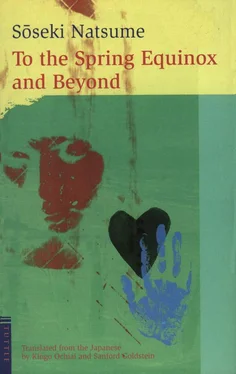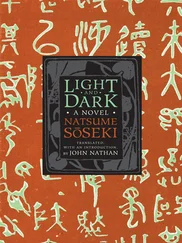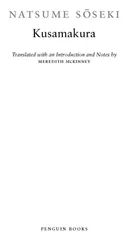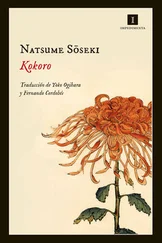Natsume Soseki - To the Spring Equinox and Beyond
Здесь есть возможность читать онлайн «Natsume Soseki - To the Spring Equinox and Beyond» весь текст электронной книги совершенно бесплатно (целиком полную версию без сокращений). В некоторых случаях можно слушать аудио, скачать через торрент в формате fb2 и присутствует краткое содержание. Год выпуска: 2006, Издательство: Tuttle Publishing, Жанр: Классическая проза, на английском языке. Описание произведения, (предисловие) а так же отзывы посетителей доступны на портале библиотеки ЛибКат.
- Название:To the Spring Equinox and Beyond
- Автор:
- Издательство:Tuttle Publishing
- Жанр:
- Год:2006
- ISBN:нет данных
- Рейтинг книги:5 / 5. Голосов: 1
-
Избранное:Добавить в избранное
- Отзывы:
-
Ваша оценка:
- 100
- 1
- 2
- 3
- 4
- 5
To the Spring Equinox and Beyond: краткое содержание, описание и аннотация
Предлагаем к чтению аннотацию, описание, краткое содержание или предисловие (зависит от того, что написал сам автор книги «To the Spring Equinox and Beyond»). Если вы не нашли необходимую информацию о книге — напишите в комментариях, мы постараемся отыскать её.
To the Spring Equinox and Beyond — читать онлайн бесплатно полную книгу (весь текст) целиком
Ниже представлен текст книги, разбитый по страницам. Система сохранения места последней прочитанной страницы, позволяет с удобством читать онлайн бесплатно книгу «To the Spring Equinox and Beyond», без необходимости каждый раз заново искать на чём Вы остановились. Поставьте закладку, и сможете в любой момент перейти на страницу, на которой закончили чтение.
Интервал:
Закладка:
As is usual with women educated in the old ways, my mother has above all else the notion that the primary duty of a son is to elevate the family name. But she has no real understanding about what that means, whether it's done by honor, property, power, or virtue. She merely has some vague idea that if any of these fall along the way, the rest will somehow come together one after another. I myself lack the courage to talk to her about this sort of thing. I don't believe I'd be qualified to until I've actually elevated my family's name in a way that fits in with my own view of the world. And yet I'm someone who cannot in any way whatsoever elevate his own family name. All I can do is to keep in mind some nobility of spirit not unworthy of my family's reputation. If I presented this idea to my mother, though, it would, far from pleasing her, only make her uneasy, since it's an idea quite alien to her. That also makes me feel sad.
Among the many anxieties I've given my mother, what I'd mention first is this shortcoming I've just spoken about. But she loves me enough to allow us to get along together even without mending my bad points, so without losing this feeling of being sorry for her, I believe we can push on as we are now doing. But what torments me secretly even more than my perverseness, for fear that it will give my mother an even sharper disappointment, is the problem of my marriage. Rather than a problem of marriage, it may be more appropriate to call it the circumstances surrounding Chiyoko and me. To explain all this in the proper sequence, I'll have to go back to the days before her birth.
The Taguchi of that time was neither a man of influence nor fortune, as he is now. But he was a young man of promise, so my father interceded on his behalf so that he could marry my mother's sister. Taguchi looked up to my father as his senior; he sought his advice and was given assistance in one way or another. The close relationship established between the two families was moving along more smoothly month after month by the time Chiyoko was born. I heard that my mother asked at the time, though I don't know even now what made her think of it, if the Taguchis would give this child in marriage to "her Ichizo" when she grew up. According to what I heard from my mother, they readily gave their assent on that occasion. Momoyoko was born later, and then they had a son, Goichi. Since there was a male heir now, the Taguchis could freely give Chiyoko in marriage to whomever they wished. I myself don't know whether they had definitely pledged to my mother that they would give her to me.

At any rate, there was that kind of tie between Chiyoko and me from that early time on even without our being aware of what was happening around us. But the ties binding us were rather uncertain ones. The two of us grew up as freely as skylarks soaring toward heaven. Even those who had twisted those ties might not have been aware that they were holding them so firmly at their ends. I feel a deep sadness for my mother in not being able to use the words "uncertain ties" as meaning the strange workings of fate.
When I entered college preparatory high school, my mother hinted at the affair concerning Chiyoko. At that age I was of course conscious of the other sex. But no idea had yet formed in my mind about who would be my future wife. I was not mature enough; I was still too restless to give the topic any serious thought. Actually, the girl who had played and quarreled with me since childhood and who was as familiar to me as if she had practically grown up in the same house seemed so very close to me that she looked too commonplace to provide the usual stimulus a man feels about the opposite sex. I think that these feelings were not mine alone but were probably the same with Chiyoko. As evidence, I cannot recall a single experience throughout our long association in which she treated me as a male. In her eyes, whether I'm angry or crying or posing amorously and making eyes at her, I'm invariably nothing more than her cousin. This comes partly, though, from her disposition, in which an inherent purity is dominant — this temperament of hers I know better than anyone else. But her disposition could not be the only thing that removes so completely the barriers set up to make us aware of the sexes. Only once did — well, I'll tell about that later.
My mother interpreted my deafness to what she said as coming from shyness, so she put the question away as though she were waiting for another occasion to mention it. I don't have the courage to deny that I was shy at the time. But my mother's interpreting the fondness I have for Chiyoko as shyness really amounts to acknowledging the exact opposite for a fact. The upshot of the matter is that all my mother's endeavors to bring us up on as friendly terms as possible in preparation for our future have only resulted in putting us further and further apart as man and woman. And yet my mother herself was quite unaware of this. And it was cruel of me to have brought it to her attention.
It really pains me to tell you what happened one day. Ever since that time during my high school days when my mother hinted about the question of Chiyoko, she seemed to have been brooding over it in her heart— until one night in my second year at the university, that is. During spring vacation when news of the blooming of the cherry blossoms was being talked about, she laid the question gently before me. By that time I was much more mature, so I could afford to take up the matter quietly and examine it carefully from all angles. This time she didn't merely drop some remote hint, but took care in phrasing her hope in an appropriate form. I simply replied that I found the situation distasteful because a cousin is related by blood. To my surprise, my mother said that she had requested that Chiyoko be given to me as my wife — she asked this right when Chiyoko was born — so that I really ought to marry her. When I asked why she had made such a request, she answered that it was because she liked the child, and that there was no reason why I shouldn't either. Such a reply, hardly applicable to the baby I was at the time, made me feel embarrassed. I pressed her further until she said with tears in her eyes that it wasn't, in fact, for my sake, but for her own. And yet she would not give me the answer to my repeated question of why it would be good for her. Finally she asked if it was impossible to bring myself to accept Chiyoko as my wife. I told her that I had no dislike for Chiyoko, but that since she herself had no desire to become my wife, nor did her parents want her to, it was better not to make such a proposal because it would only cause them trouble. My mother insisted that no matter what trouble they might be caused, it involved a promise, nor was there any reason to worry about causing them trouble. She then proceeded to give a number of instances in which Taguchi had been helped by my father and had given trouble to him. There was no dissuading her, so I suggested that we put off the final answer until my graduation. With a gleam of hope amid such misgivings to light up her countenance, she asked me to think it over once again.
These were the circumstances which forced me to share this problem which until then had been carried only in my mother's heart. Are not the Taguchis brooding over this very same problem in their own way? If they were to give Chiyoko in marriage to another family, they would at least have to get our approval at the last moment. That must be a source of worry to my uncle as well.

I began to feel uneasy. Whenever I saw my mother's face, I felt qualms, since it seemed to me as though I were shuffling through day by day by deceiving her. Once I actually reconsidered everything and decided, if it were possible, to marry Chiyoko as my mother wished. With that purpose in mind, I went out of my way to visit the Taguchis even when I didn't have any real business there, merely to sound out my aunt and uncle indirectly. Neither in words nor bearing did they show any sign of shunning me as they could have if they had been anticipating my mother's hard pursuit. They're not that shallow or unkind. Yet what a pitiful image they had of me as a would-be husband for their daughter. Their impression hadn't improved in the least from what I could tell it had been earlier; in fact, it had gotten worse. In the first place, my weak physique and pale complexion were unacceptable in their view of me as a potential son-in-law. I admit, though, that with my over-sensitivity, I'm apt to exaggerate or bring some undue prejudice to bear on someone's appraisal of me. So I think I'd rather avoid the impropriety of speaking too freely about the close observations I've made of my aunt and uncle, and keep them to myself. Anyway, they had probably committed themselves at that early time to giving Chiyoko to me as my wife — at least they had probably thought that they might as well. But later on, their rising social status, as well as their own view of my character, with its course quite opposite their own, must have doubly deprived the engagement of its feasibility, and now only the empty slough of obligation has been left behind somewhere in their minds. That may be how the affair now stands.
Читать дальшеИнтервал:
Закладка:
Похожие книги на «To the Spring Equinox and Beyond»
Представляем Вашему вниманию похожие книги на «To the Spring Equinox and Beyond» списком для выбора. Мы отобрали схожую по названию и смыслу литературу в надежде предоставить читателям больше вариантов отыскать новые, интересные, ещё непрочитанные произведения.
Обсуждение, отзывы о книге «To the Spring Equinox and Beyond» и просто собственные мнения читателей. Оставьте ваши комментарии, напишите, что Вы думаете о произведении, его смысле или главных героях. Укажите что конкретно понравилось, а что нет, и почему Вы так считаете.












